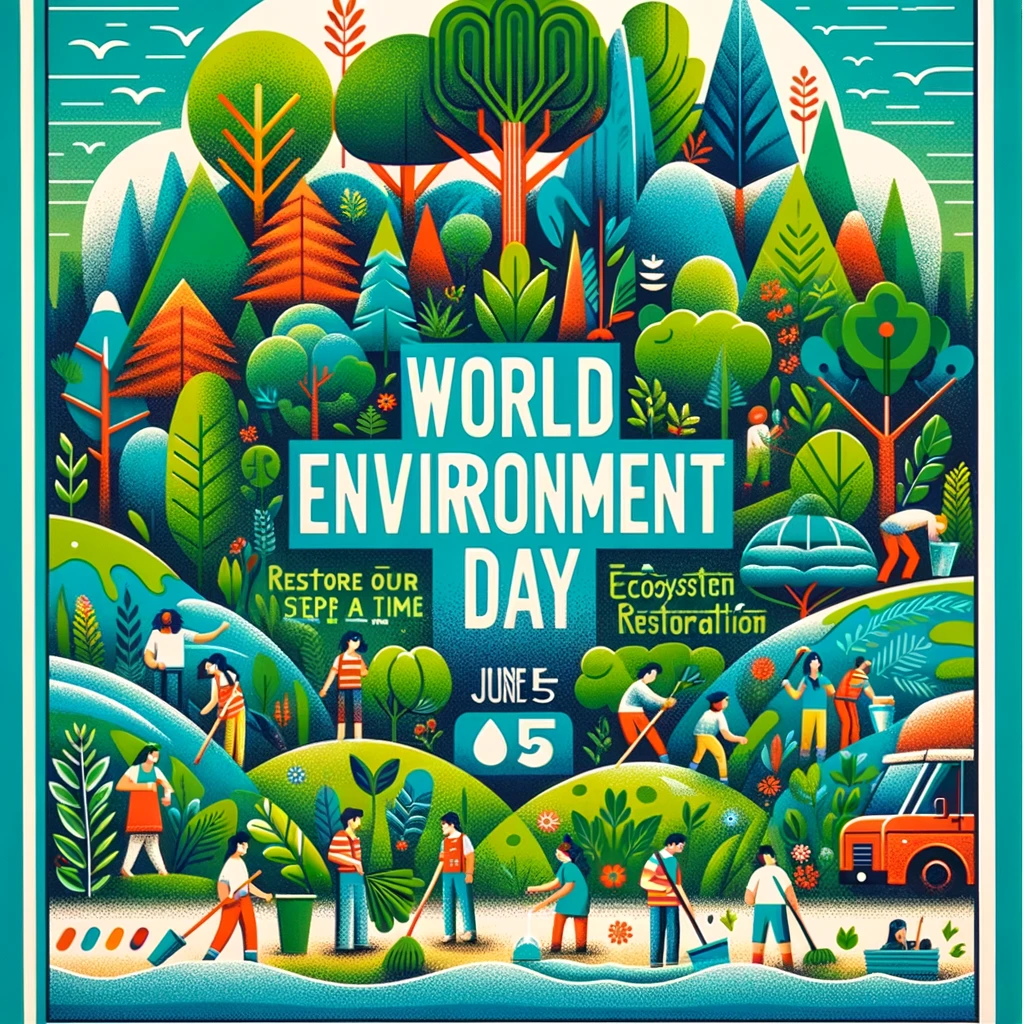World Environment Day, celebrated annually on June 5th, serves as a global platform for raising awareness and taking action on pressing environmental issues. Established by the United Nations in 1974, this day has grown into one of the most widely recognized and celebrated environmental events. It encourages governments, businesses, and individuals to reflect on their environmental impact and commit to sustainable practices.
The theme for each World Environment Day focuses on a specific environmental concern, aiming to inspire positive change and mobilize collective efforts. From combating climate change and reducing plastic pollution to preserving biodiversity and promoting sustainable development, each theme underscores the interconnectedness of environmental issues and the need for comprehensive solutions.

This year’s theme, “Ecosystem Restoration,” emphasizes the urgent need to revive natural ecosystems that have been degraded or destroyed. This involves activities such as reforestation, wetland restoration, and sustainable agricultural practices. Ecosystem restoration not only enhances biodiversity but also mitigates climate change and improves human well-being by providing cleaner air, water, and food resources.
Celebrations and activities on World Environment Day are diverse and widespread. They include tree-planting campaigns, beach clean-ups, educational workshops, policy discussions, and community-driven projects. These events highlight the role that individuals and communities play in protecting the environment and demonstrate that collective action can lead to significant positive outcomes.
The importance of World Environment Day extends beyond a single day of celebration. It serves as a reminder of the ongoing environmental challenges we face and the necessity of sustained effort and commitment. By fostering a sense of global responsibility and encouraging practical actions, World Environment Day helps to create a more sustainable future for all.
As we reflect on this year’s World Environment Day, it is crucial to recognize the power of individual actions and the cumulative impact they can have. Simple changes in daily habits, such as reducing waste, conserving water, and supporting eco-friendly products, can contribute to larger environmental goals. By working together, we can restore ecosystems, protect natural habitats, and ensure a healthier planet for future generations.
Leave a Reply